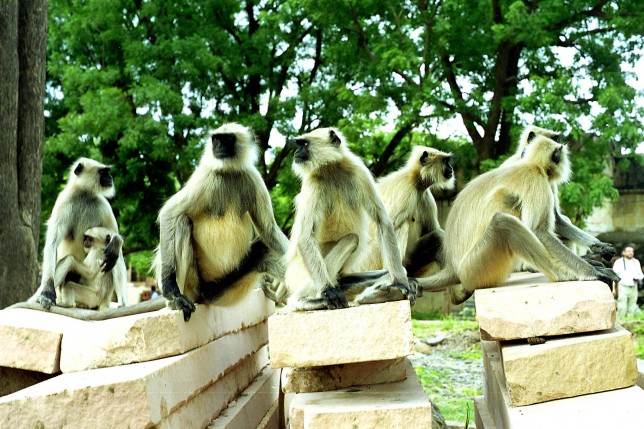 When we were babies we could cry at any moment we felt hungry and did not have food. It was acceptable to soil our diapers any time we felt the urge.
When we were babies we could cry at any moment we felt hungry and did not have food. It was acceptable to soil our diapers any time we felt the urge.
We still have those same urges and needs. Those things are still necessary to survive. But we learn very early in life to control our reactions and not immediately respond to those urges the moment we feel them. There are many, many more necessary innate traits and instincts we need to learn to control through our lives.
The essence of growing up is becoming ever better at not just controlling, but using our innate traits and instincts to the best advantage. The more effective we are at this, the more mature we are, and the greater ability we have to succeed at life.
Insecurities are critical to every thinking life form. Insecurities are created by the honing of innate instincts with life experiences. Insecurities are sharper and more discerning than innate instincts because they are enhanced by experience. Everyone has insecurities–everyone.
While some people rationalize otherwise, we do not live in a world we control. In a moment another human, the Earth, or the universe itself can destroy the strongest, the smartest, the richest, the most powerful of us individually or in mass.
The only thing we supposedly do have control over, our own behavior, can also destroy us in a moment.
Insecurities are what warn us about the dangers around us, physical dangers and social dangers. Perhaps more important, insecurities also warn us of our own limitations. Without insecurities we would not survive as individuals or as a species.
Insecurities enable us to be perceptive beyond logic and to be instinctive when there is not time for logic. Used effectively, insecurities keep combatants wary and competitors alert. If we learn to control and use them, our insecurities can assist us not just to survive, but to thrive.
But when our insecurities control us, the results can be detrimental, destructive, even catastrophic. Many of the most horrible atrocities in human history can be reduced to people whose insecurities controlled them, or more accurately their reactions to their insecurities controlled them. Greed, bullying, rage and abuse are only out-of-control reactions to insecurities and fear, particularly fear of change.
There are many tools we each use in reacting to our insecurities. All of them are valuable when we manage them, and all of them are detrimental when they manage us. A great deal of our individual personalities are reflected in how and when we prefer to use the different tools, or they use us. How we combine the tools to manage insecurities can be very unique, very individual.
A number of chapters will examine the various tools we use to react to react to our insecurities. Ego and Faux Confidence and Confidence and Being Real are the first two of those chapters.
(Personal Note: I wish someone could have explained to me about insecurities when I was young. I wish someone had begun explaining it to me when I was still too young to understand and continued explaining it to me until I fully understood what it means (which I’m still working on). I would no doubt have grown sick of hearing it, and probably never appreciated how much of a difference it made, but )
If I had understood as a child that having insecurities was natural and did not mean I was hopelessly flawed, today I would have a few less of the embarrassing mistakes that still jump up from my memories. You know the ones, the embarrassing moments from the past that randomly jump up from your memories like the monkeys in the carnival game you try to beat back down with a mallet.
If I had understood as a child that the mean ways people sometimes treated me were not because I was inferior and deserved to be treated that way, but because those people were dealing with their own insecurities; I would not have fed my monkeys so heartily, and they would not have grown up to be as brawny and difficult to beat down as they are today.
If I had understood as a child that insecurity is natural and helpful, it would not have prevented all the mistakes I’ve made. (My wife will readily verify that it doesn’t prevent all of them now.) But I would have a few less of these King Kongs. You can never completely get rid of these monkeys. But if you recognize them for what they are, you can get better at managing them.
These days, as my body finds more and more ways to betray me and I am forced to face the reality that I did not understand in my youth, that as soon as my body fully matured it would begin to decline and die, I actually find renewed energy in knowing that there is a part of me that is still growing stronger rather than weaker. I am still learning to better manage my reactions to my insecurities.
I know it won’t last forever, but at least for now as my body declines there is an important part of me that is still growing up.

Leave A Comment